The Pros and Cons Of Developing A Cinematic Universe
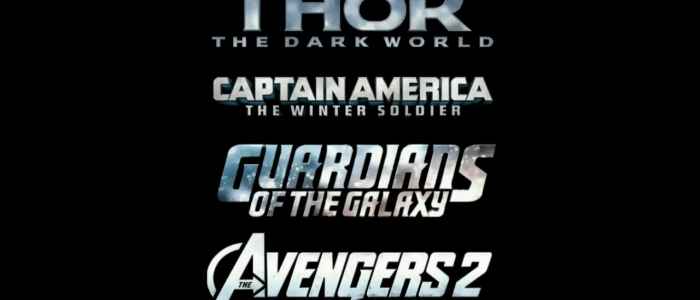
A film universe can be both a blessing and curse to create and manage. Marvel Studios, under Disney’s umbrella, has demonstrated they have the capability to create a film universe consisting of different film franchises, while feeling different or unique from one another, are interconnected in certain ways. Seeing as how Marvel’s film strategy has produced it numerous financial and critical successes, other film studios like Warner Bros. and Universal Studios have begun developing film universes of their own.
Developing film universes has been shown to have both advantages and disadvantages. Here are the pros and cons of a film universe.
Con #1: Everything must somehow be connected
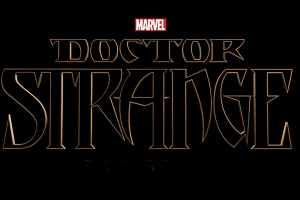 One of the most obvious and important aspects of the Marvel Cinematic Universe (MCU) is that all the films and TV shows take place in the same universe and are therefore interconnected as a result. While Marvel Studios’ films do not appear to suffer from this significantly on the surface, it is a limiting factor in terms of how each film’s stories and characters are a result of events from prior films. In addition, it can sometimes be hard to know when a film took place. For instance, Cinemablend’s Adam Holmes wrote an article about when Marvel’s latest film Doctor Strange takes place because it contained many references to other Marvel films but failed to express when it took place within the MCU’s continuity. With Strange’s name being referenced in Captain America: The Winter Soldier, one would think it took place at some point before that film. But one of the writers for Doctor Strange said it took place in 2016, meaning it took place after Avengers: Age of Ultron (Holmes, 2016, para. 2). It could be argued that Strange’s name was mentioned in Captain America: The Winter Soldier because he was a very talented surgeon and had not become a sorcerer at the time. But for now, there is no answer. Because of how everything can be connected, it can be nearly difficult to place every film within the proper time frame and ensure there are no continuity errors. With all of Marvel’s films connected, the continuity must be streamlined in the future to avoid the continuity dilemma demonstrated by Doctor Strange.
One of the most obvious and important aspects of the Marvel Cinematic Universe (MCU) is that all the films and TV shows take place in the same universe and are therefore interconnected as a result. While Marvel Studios’ films do not appear to suffer from this significantly on the surface, it is a limiting factor in terms of how each film’s stories and characters are a result of events from prior films. In addition, it can sometimes be hard to know when a film took place. For instance, Cinemablend’s Adam Holmes wrote an article about when Marvel’s latest film Doctor Strange takes place because it contained many references to other Marvel films but failed to express when it took place within the MCU’s continuity. With Strange’s name being referenced in Captain America: The Winter Soldier, one would think it took place at some point before that film. But one of the writers for Doctor Strange said it took place in 2016, meaning it took place after Avengers: Age of Ultron (Holmes, 2016, para. 2). It could be argued that Strange’s name was mentioned in Captain America: The Winter Soldier because he was a very talented surgeon and had not become a sorcerer at the time. But for now, there is no answer. Because of how everything can be connected, it can be nearly difficult to place every film within the proper time frame and ensure there are no continuity errors. With all of Marvel’s films connected, the continuity must be streamlined in the future to avoid the continuity dilemma demonstrated by Doctor Strange.
This example proves that it may be important to know when films like these take place within their universe in order to ensure there are little to no continuity errors within the main canon. While Doctor Strange and other films before it were not hindered in any way by this small error, it may be important for future Marvel films to let audiences know when exactly they take place. But so far, every Marvel film that Marvel Studios has ever released has not had to worry too much about where they take place in continuity considering the fact that are independent of each other. It may, however, be in Marvel Studios’ best interest as well as other studios making film universes to take this detail into consideration when making their movies. This way, audiences do not get confused or misled about when the film they are watching takes place. It may not be the biggest issue but it may be important.
Con #2: Everything may be controlled by executives
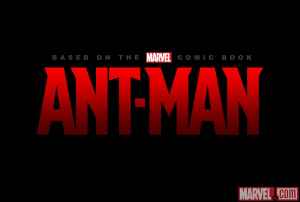
For a long time, Kevin Feige, head of Marvel Studios, would listen to Marvel’s Creative Committee, a group of prominent figures from Marvel that included its own writers such as Brian Michael Bendis, who would give notes on what should be done in making a movie such as information regarding the story (Faraci, 2015, para. 3). When Ant-Man was still in the process of being finalized for its production, its director, Edgar Wright, left the project because the notes he received are not what he had envisioned for the movie (Faraci, 2015, para. 4). Due to how much he thought the committee was hindering the development of the studio’s films, Feige had the committee dissolved last year (Faraci, 2015, para. 2). Now Feige and his fellow producers Louis D’Esposito and Victoria Alonso no longer need to adhere to any guidelines. But the Creative Committee is a demonstration of what can happen to an interconnected film universe’s creative process when it is controlled by executives. Because of the interconnectivity of Marvel’s films, the committee may have been mainly concerned with how each film would connect with one another considering the MCU is comprised of different film franchises but are linked together in certain aspects. But with the dissolution of the Creative Committee, at least Feige and his partners no longer answer to a higher power.
But while Ant-Man was ultimately able to become a critical and commercial success, other films like it suffered from the same problems and turned out good or were not so fortunate. The former is perfectly displayed with Thor: The Dark World. Like Ant-Man, it suffered from creative problems that could have brought the movie down. Patty Jenkins was originally going to direct the film, but, like Wright, exited the project due to creative differences (Fleming Jr., 2011, para. 1). Eventually, Alan Taylor was hired to direct the film (McGovern, 2015, para. 3). Taylor’s experience making the film was apparently not what he had hoped for. During an interview, Taylor stated that while he was able to do what he desired during the production stage, post-production was more of a problem for him because “it turned into a different movie” (McGovern, 2015, para. 2). There have been problems pointed out in the film which may have been a result of the behind the scenes troubles and prevented the film from being better than it was. One problem that has been noted is that the main antagonist is not a very compelling or in-depth character and should have been “understandable” (Moosa, 2015, para. 7 & 8). This may have been a result of when the studio executives were influencing the film’s development. But despite these problems, Thor: The Dark World was still a financial success.
While Ant-Man and Thor: The Dark World were able to become really good films, other movies could not afford the same luxury. Warner. Bros.’s DC Comics film Suicide Squad is a recent example. Following the negative reaction that Batman v Superman: Dawn of Justice (BvS) received, Warner Bros. executives became fearful of how their next DC Comics film would turn out and opted to create a new cut of Suicide Squad (Masters, 2016, para. 6). The studio even agreed to have more footage shot to help make this new version of the film (Masters, 2016, para. 8). Director David Ayer and the studio’s competing cuts are said to have been a possible factor for the way the film turned out (Masters, 2016, para. 11). While the film itself was critically panned, it did manage to became a box office hit for Warner Bros. Hopefully the studio can streamline the development of their films in the future.
If these situations were to set a precedent for anything, it is that future films should not be constricted creatively. Part of what makes Marvel Studios’ films appealing is that each one has its own unique style in terms of tone or any other characteristic. They are all very unique for films that are set within the same universe. If other studios are looking to replicate Marvel Studios’ film model, one piece of advice may be that they should let the films’ creative teams have their visions fully realized. Wright had a vision he felt would work for Ant-Man, but was held back because of what his superiors wanted for the film because they felt his idea may have been bad for the movie. Studios may want in their films’ best interests to let their creative teams have the room they need to make a film audiences will enjoy. If anything, Ant-Man‘s situation can hopefully serve as a reminder for why film studios should let the creative teams they put together fulfill their roles the way they desire to.
Con #3: The Faults Of Current Films Can Affect Future Films
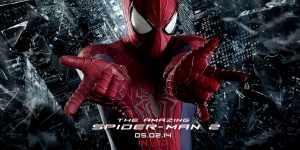
Due to the interconnectivity of different film franchises, current films can have an effect on the development of future films within a cinematic universe. One example is Sony Pictures’ The Amazing Spider-Man 2. After Sam Raimi left the Spider-Man film franchise because of creative problems regarding Spiderman 4 resulting in that film’s cancellation, Sony decided to reboot the franchise (Looper Staff, 2016, para. 2). After 2012’s The Amazing Spider-Man became a commercial success for the studio, Sony, like many film studios, released a sequel titled The Amazing Spider-Man 2 in 2014 (Looper Staff, 2016, para. 4). While it did well financially, it was critically-panned with one reason being that there was too much happening in the film (Looper Staff, 2016, para. 4). Despite this setback, Sony decided to develop not only sequels but spin-offs focusing on other characters within The Amazing Spider-Man universe such as Sinister Six (Looper Staff, 2016, para. 4 & 5). However, the plans were eventually dismissed following delays and other setbacks (Looper Staff, 2016, para. 6).
Seeing as how their plans for Spider-Man were falling apart, Sony decided to reboot the franchise again, this time teaming up with Marvel Studios to bring Spider-Man into the MCU, with Tom Holland playing the character and making his debut in Captain America: Civil War (Looper Staff, 2016, para. 7 & 8).
If this example proved anything, it is that the mishaps of one film can have a negative domino effect on the development of future films. Sony’s mistake may have been that they thought their films could become something reminiscent of Marvel Studios’ work. They may have failed to take into account on whether or not The Amazing Spider-Man 2 could have been not well-received by fans and critics alike. A smart move Sony could have made was seeing the mistakes they made and try to learn from them.
In addition to Sony, Warner Bros. is trying to make their first Justice League film, as well as their DC Comics Cinematic Universe, a success following the negative backlash that BvS received. In order to ensure success, the studio has changed around the positions of its top film executives, with producer Charles Roven’s role with upcoming DC Comics films to be reduced and Geoff Johns of DC Comics fame brought on board to help out with future DC Comics films going forward (Mae, 2016, para. 2 & 5). It would appear that Warner Bros. is working diligently to ensure that their future comic book-based films do not disappoint audiences the way BvS did.
With Sony and Warner Bros.’s films affecting their film plans, studios can look at these two examples in order to see how they should go forward with making cinematic universe-based films. Sony and Warner Bros.’s approach to creating cinematic universes may have been flawed at best when it came to formulating their plans and how the execution did not work in their favor. If anything, they must have assumed that their films would do better than they did both critically and commercially. Hopefully, both studios are learning from their past mishaps and working hard to correct those errors for future films.
Pro #1: Because of interconnectivity, these characters can be together in team movies
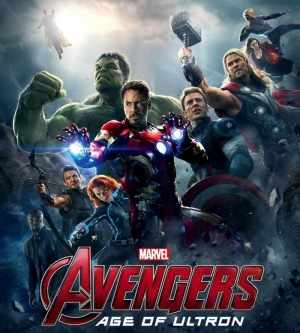
Thanks to how interconnected its universe is, Marvel Studios is able to have their characters come together in one film without having any difficulty of doing recasts or anything of that nature. The next Avengers film, Avengers: Infinity War, is said to incorporate many characters that have already appeared in previous Marvel films, with around 67 characters said to appear (Armitage & Fletcher, 2016, para. 10). Established characters such as Benedict Cumberbatch’s Doctor Strange are said to be a part of the film, but everything is still in the process of being finalized (Armitage & Fletcher, 2016, para. 13 & 14).
Marvel Studios is in a very good position when it comes how interconnected its film universe is. It does not have to worry when it comes to recasting any of its characters or having to reboot any of its film series. It does not have to be pressured by the faults of other film franchises that had to be rebooted due to unfortunate circumstances. The MCU is full of different film series that are very interconnected that it does not feel it needs to revamp any of its characters. With the first two Avengers films being very successful, only time will tell if there will be a third successful Avengers film.
Pro #2: Hints leading to the next film
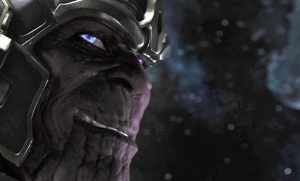
Every film in the MCU has always had a post-credits or mid-credits scene that set ups the next film. This is done to ensure that audiences are excited for the next offering that Marvel Studios has to bring. These scenes are meant to offer glimpses of what fans can expect for future films. This has always worked in Marvel Studios’ favor because it ensures that fans can get excited for future films and that the studio has more commercial successes.
Mid-credits or post-credits scene are tools that can be utilized if a studio wishes for audiences to be enthralled by what they see and get them interested in seeing the next film. It is a mechanism that keeps the wheel turning and the momentum going for success. Mid-credits or post-credits scenes are a tool that can keep audiences in excitement in what is yet to come.
A film universe can be a very risky yet enticing model to follow that comes with its own challenges and benefits. Marvel Studios has demonstrated that they are able to come up with a formula that benefits them greatly. Time will tell if other studios such as Warner Bros. are able to have similar successes with their film universes. Marvel Studios may be a precedent for how to create and manage a cinematic universe to near perfection.
Works Cited
Armitage, Hugh & Fletcher, Rosie. Avengers: Infinity War cast, release date, plot, spoilers and everything you need to know. 15 November 2016. <http://www.digitalspy.com/movies/the-avengers/feature/a790651/avengers-infinity-war-part-1-and-2-cast-release-date-plot-spoilers-and-everything-you-need-to-know/>.
Faraci, Devin. The Marvel Creative Committee Is Over. 2 September 2015. <http://birthmoviesdeath.com/2015/09/02/the-marvel-creative-committee-is-over >.
Fleming, Jr. and Mike. Director Patty Jenkins Exits Marvel’s Thor 2. 6 December 2011. <http://deadline.com/2011/12/director-patty-jenkins-exiting-thor-2-sequel-201868/>.
Holmes, Adam. When In The MCU Does Doctor Strange Take Place? November 2016. <http://www.cinemablend.com/news/1582629/when-in-the-mcu-does-doctor-strange-take-place>.
Looper Staff. What really happened with The Amazing Spider-Man 3. 14 February 2016. <http://www.looper.com/7536/really-happened-amazing-spider-man-3/>.
Mae, Ralin. Batman vs Superman: Dawn of Justice Aftermath: Producer Charles Roven Role in Justice League Movie Reduced? 30 May 2016. <http://www.hofmag.com/batman-vs-superman-dawn-of-justice-charles-roven-role-reduced/155601>.
Masters, Kim. Suicide Squad‘s Secret Drama: Rushed Production, Competing Cuts, High Anxiety. 3 August 2016. <http://www.hollywoodreporter.com/heat-vision/suicide-squads-secret-drama-rushed-916693>.
McGovern, Joe. Alan Taylor: Thor: Dark World experience was ‘particularly wrenching’. 30 June 2015. <http://ew.com/article/2015/06/30/terminator-genisys-alan-taylor-marvel-complaint/>.
Moosa, Tauriq. 3 Insulting Things About Thor: The Dark World. 2015. <http://bigthink.com/against-the-new-taboo/3-insulting-things-about-thor-the-dark-world>.
What do you think? Leave a comment.










I like cinematic universes in TV and movies. Because it’s new and something we haven’t really seen before. I like when the medium evolves.
The main con is that creators and readers/viewers need to impose limits to those interactions and convergences that might not entirely make sense in-canon or seem contrived, but are pretty essential to maintain an appropriate level of storytelling scope.
I think one of the biggest positives of interconnected movie universes is it’s TV-esque quality. It gives characters a chance to develop not only individually but in their relationships to each other. Using the Marvel example, we’ve seen the relationship between the Avengers change and become more complex. From a thrown together group of heroes in the first Avengers to clear friends in Avengers 2 (best exemplified by the party scene) and ending in a heart wrenching tearing apart in Civil War. Yet mere sequels couldn’t have accomplished this because the relationships of the group depended so strongly on the motivations of the individual established in the solo movies. Civil War’s titular battle wouldn’t have happened if Steve Rogers hadn’t been so disillusioned with the government by the events of the Winter Soldier; he likely would’ve had little issue with working closely with government officials.
The Marvel Netflix shows share the same redeeming qualities but stand out in their quality of villains. The solo series’ have all given their villains time to be fleshed out which make their final battles all the more intriguing. While the MCU has struggled in the villains department, in Infinity War, we’re going to have a villain that’s been building up over multiple movies which will increase our engagement with him.
The only ‘pro’ the studios see is financially-reliable films… I mean, there wasn’t a lot of creative passion involved in Sony’s planned ‘Sinister Six’ movie… I hope that crossovers are used a lot in the future! Characters have always been comic’s greatest strength, so character interactions are almost always fun. Like, if you have two charismatic actors, both characters are immediately more likable/developed when they can banter and interact. I hope the MCU takes a ‘Brave and Bold’ or ‘JL Action’ (haven’t seen much, but it looks to be very fun) approach and does lots of team-ups. That looks like what Ragnarok is planning, so I hope it’s successful and they continue to do two or three main characters. Not full teams, but more like the triumvirate in Cap 2 or Logan (Cap/Widow/Falcon, Logan/Charles/X23), or partners in IM 2 and Ragnarok (Widow/Tony, Hulk/Thor). When it’s a 2/3 person team up, the quality and sense of possibility seems to expand exponentially! I wish DC had done this better with BvS… Someday there WILL be a Booster Gold/Ted Kord movie and the formula will be proven effective. So ends this over-extended rant.
It doesn’t always have to be up front and in your face… An occasional reference is generally sufficient to keep things related. We saw a bit of that with the Star Trek movies and TV shows: not a LOT of referencing back and forth, but just enough to keep you engaged. The one item I usually refer to is the Star Fleet uniform changes that occurred in the movies that were then reflected in the (then current) TV shows..
Like that DC has put comic book shows on several main line networks instead just Netflix and ABC, that is crazy. They are really spreading the geek love all over the place: NBC/FOX/CW and AMC.
One of the things I liked about the Later Stargate shows was that the mythology, technology and context had all been established very successfully, allowing them to expand that world and tell new stories, but still bring it back to what we already knew. I really liked the episodes where there were crossovers, or where supporting characters from SG1 were shown busily getting on with their jobs where appropriate for Atlantis episodes.
Totally. Star Trek had the same advantage. Deep Space Nine was only able to tell the amazing stories they did because The Next Generation had spent years exploring that universe and setting the scene. You went into it knowing about the politics of the Alpha Quadrant and it was then great to see the Dominion take a sledge hammer to that and explore what happens when that world is pushed to breaking point. If it hadn’t already been established they would have had to have worked much harder to show the audience what the characters were fighting for.
The problem with Marvel’s shared universe is the ever-present question of “Where was ____?” anytime a major threat shows up. How can Iron Man save the world and NOT call in the Avengers? Any threat to the world that would draw the attention of one hero should draw the attention of all of them. Or aren’t they talking anymore? Are they ashamed to ask for help? If a villain is kicking around one hero, why wouldn’t they call for backup? Shouldn’t Captain American have asked for Tony Stark’s help to stop Hydra technology? If Stark is so smart (as Reed Richards is absent in the MCU) wouldn’t every hero turn to him for advice against tech-based villainy?
DC saves us from this (in the movies at so-far at least) by keeping interactions in the comic books, where readers accept the multiverse and the variations that plague such settings.
Marvel Phase 1 – All happened during 1 week, when the majority of characters were entirely unaware of each other.
Marvel Phase 2:
IM3 – Tony gets mostly cut off from the rest of the world and is presumed dead by many people. He uses this to his advantage, only really getting back in touch with the world at the very last minute.
Cap 2 – Cap doesn’t know who he can trust and has to go off the grid. For all he knows, Tony could be working with Hydra, especially since he helped reinvent the helicarrier.
Thor 2 – Mostly takes place off-world, and no other member of the Avengers has even suggested they know how to reach places like Asgard just yet.
A lot of characters make more sense when you see them contrasted with other characters. Batman and Superman are each great individually, but put the two of them in a story together and you can highlight their differences and conflicts.
That’s where it could really shine for DC to have well established characters butting heads. It’s been said that Superman is a boring character, as the invincible boy scout. Up against other established heroes with different rules to him you can see him challenged in a way Lex Luthor or Zod never could.
I think the greatest achievement the Marvel brand should be lauded for is showing audiences that it’s the film, not the genre or specific details, that make a movie worth watching.
Some people still say how amazing it is that a talking Raccoon dominated the box office, but what’s so strange about that when the Raccoon was a great character?
The avengers is so awsome just awsome everything about the avengers is awsome
It’s fun to see different demigods bounce off with one another and have fantastical office dynamic. Also having parallel mythologies and characters living lives parallel to each other in the same same adds to a greater pool of story possibilities and world building.
The lack of creative integrity is really at the hands of the Disney-owned side of the Marvel Universe. It’s a shame not to mention the failures and successes of the Netflix-owned or 20th Century Fox-owned sides of the same comic books production banner. If you take example of Jessica Jones or the massive success of Deadpool, it’s easy to see how Disney is forfeiting their integrity and the reason those comic book characters were substantial originally, for a wider audience and safer ethic content when developing their tent-pole hero movies. Both Iron Man and Captain America were politically important in their comics, as was Black Widow and Bucky Barnes, Spiderman, and all of the Avengers as they were originally, but do to competitive marketing and movie rights, we will never see timeless stories onscreen as they deserve to be. Disney can’t make an Avengers movie without Wolverine, nor Spiderman. Their integrity is polluted with the legalities of sharing the Marvel brand and insisting on creating an ever-expanding world in which they’re blatantly, and rather clumsily, avoiding canon storylines and character development to get more and more money with films that are less and less satisfying.
With Marvel we are going to have to try and watch all that content in order, and if some if sucks we are going to have to watch it anyway just to try and get the whole story.
I like that with the separate universes they get to tell different stories, and be impactful.
The most obvious CON of universe continuity wank is 80% of Agents of SHIELD. That show is on a hard three strikes and I’m out, because they just can’t afford to squander the good will they shouldn’t have had to earn in the first place.
The biggest problem is that Nintendo just doesn’t release enough AAA games.
Isn’t the whole idea of a cinematic universe and how that works pretty much identical to how the Marvel Universe works for comics? I’m seeing a lot of parallels here.
For example, there’s editorial control over characters that sometimes limits creators’ visions. However, team-ups are a frequent occurrence, and often used as marketing events, and the in-jokes and references between books are fun. Also, the interconnected universe (or multiverse, as it may be) provides a huge playground of settings and characters that can be used in any of the various series that may be publishing at the time.
How can the ways that comics use to cope with some of these issues due to the interconnected universe be used to help with movie universes as well?
I actually consider your Con 1 a Pro. It just has to be developed well so that they can still be considered one shots while still link together.
A really interesting article to read. There was a lot of information in there that I didn’t even know about the Marvel Cinematic Universe. It goes to show how commercially driven the executives behind the scenes, really are and how their decisions can devalue the product they are creating.
Cool article.
I think Pro 1 can also turn into a con if not done right; attempts to focus on including too many characters can turn otherwise interesting movie into a bit of a mess and leave the audience wondering a character was even included when they are there for one scene. I think that while Marvel has managed to pull off numerous successes that is a concern with their upcoming Infinity war movies as the combined number of main characters from all their current movies is quite high.
Very good points. I think the pros far outweigh the cons in the Marvel universe. Great article!